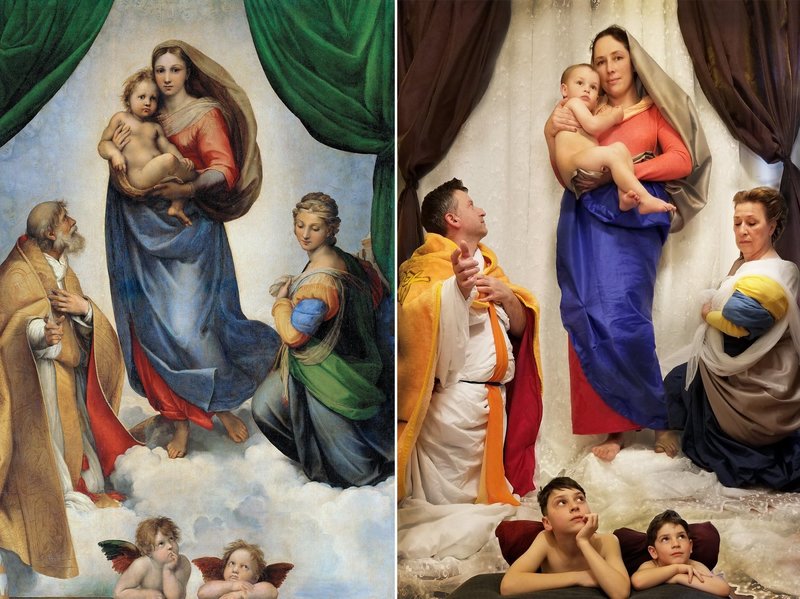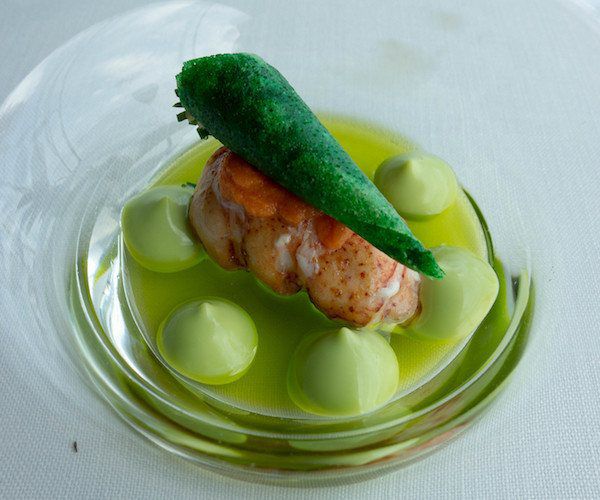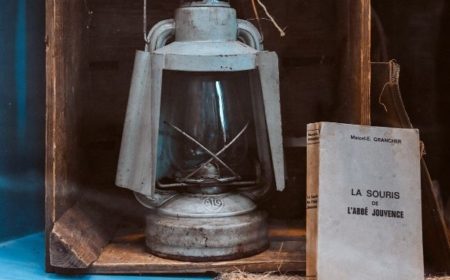
A Russian art project intended to ward off the lockdown blues has become a viral sensation on Facebook as pent-up Russian speakers from across the globe reenact paintings to pass the time amid the coronavirus pandemic.
Called Izoizolyacia — roughly meaning “Art Isolation” — the Facebook group says it’s for people with “limited movement and unlimited fantasy.” It invites members to re-create masterworks but with one important restriction of its own: Use only what you have at home.
In a little over a month, the community has grown to more than a half-million members. Using household items, food, raided wardrobes, and a familiar Russian-inflected sense of irony, members have produced dizzyingly creative remakes of everything from European masterpieces to Soviet agitprop and coronavirus-influenced memes.
Take Elena Nikolaenko, 36, who moved from Russia’s Far East to Toronto five years ago. She re-created Raphael’s 16th-century Sistine Madonna with her husband, mother, and three children.
“My mother came up with the idea while stuck here because of the travel bans,” Nikolaenko says. “She noticed the picture had the same number of people as we had in our family.”
Nikolaenko adds that her 11-year-old son, Timofei, “has been amazed by the response,” now at more than 79,000 likes.
In the age of Instagram, it’s no surprise that visual artists, celebrities, and influencers have also gotten in on the act. But it’s average people — and ordinary bodies — who often generate the most laughs and, often, likes.
Olga Blytova, an oral surgeon based in St. Petersburg, Russia, created a self-portrait inspired by a statue of ancient Egypt’s Queen Nefertiti.
The project started with a few friends in Moscow looking to entertain each other as the city began enforcing self-isolation rules as the virus took hold in April.
“I took a picture of my husband, tagged it Izoizolyacia, and asked a few others to join,” says Katerina Brudnaya-Chelyadinova, 38. Her husband, Dmitry Dolgorukov, donned a hat and painted beard for the project’s first post — a quick riff on Vincent Van Gogh’s Self-Portrait with Straw Hat from 1887.
The post got a few laughs, sure, but there was little sense of what was to come.
Some friends responded. Then more submissions trickled in from across Russia. Soon posts were coming in from Ukraine, Georgia, Israel, Western Europe, North America, and beyond.
“We did nothing. It was completely organic,” says Brudnaya-Chelyadinova. She quickly assembled a team of volunteers to help curate an online exhibition that defies national boundaries but shares a certain cultural affinity. For more



